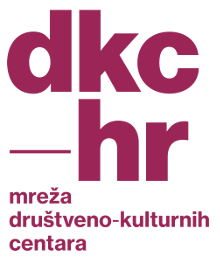
Croatia, officially the Republic of Croatia ), is a country located at the crossroads of Central and Southeast Europe. Its coast lies entirely on the Adriatic Sea. It borders Slovenia to the northwest, Hungary to the northeast, Serbia to the east, Bosnia and Herzegovina and Montenegro to the southeast, and shares a maritime border with Italy to the west and southwest. Its capital and largest city, Zagreb, forms one of the country's primary subdivisions, with twenty counties. The country spans 56,594 square kilometres, and has a population of nearly 3.9 million.

Zagreb is the capital and largest city of Croatia. It is in the north of the country, along the Sava river, at the southern slopes of the Medvednica mountain. Zagreb stands near the international border between Croatia and Slovenia at an elevation of approximately 122 m (400 ft) above sea level. The population of the Zagreb urban agglomeration is 1,271,150, between a quarter and a third of the total population of Croatia, while at the 2021 census, the city itself had a population of 878,131.

Culture of Croatia has historically been influenced by Central European, Mediterranean and other Balkan cultures. Croatia's unique culture and identity can be traced back to the historical llyricum, and the Dalmatae illyrian tribes of Dalmatia. The Croatian language is believed to have been formed in the 6th or 7th century, and the written language is present in Glagolitic texts from the 11th century.

The University of Zagreb is a public research university in Zagreb, Croatia. It is the largest Croatian university and one of the oldest continuously operating universities in Europe. The University of Zagreb and the University North are the only public universities operating in Northern and Central Croatia.

Lesbian, gay, bisexual, and transgender (LGBT) rights in Croatia have expanded in recent years, but LGBT people may still face some legal challenges not experienced by non-LGBT residents. The status of same-sex relationships was first formally recognized in 2003 under a law dealing with unregistered cohabitations. As a result of a 2013 referendum, the Constitution of Croatia defines marriage solely as a union between a woman and man, effectively prohibiting same-sex marriage. Since the introduction of the Life Partnership Act in 2014, same-sex couples have effectively enjoyed rights equal to heterosexual married couples in almost all of its aspects. In 2022, a final court judgement allows same-sex couples to adopt children under the same conditions as everyone else. Same-sex couples in Croatia can also apply for foster care since 2020. Croatia bans all discrimination on the grounds of sexual orientation, gender identity, and gender expression.
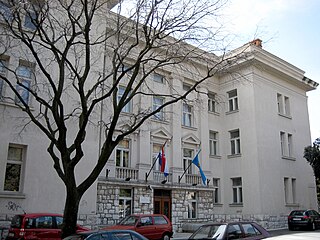
The University of Rijeka is in the city of Rijeka, Croatia, with faculties in cities throughout the regions of Primorje, Istria and Lika.
Croatian art describes the visual arts in Croatia, and art by Croatian artists from prehistoric times to the present. In Early Middle Ages, Croatia was an important centre for art and architecture in south eastern Europe. There were many Croatian artists during the Medieval period, and the arts flourished during the Renaissance. Later styles in Croatia included Baroque and Rococo.
Education in Croatia is a right defended by Article 66 of the Constitution which states that everyone is entitled to free compulsory education under equal conditions and in accordance with their aptitudes. Education is mandatory for children aged 6 to 14.

NISI MASA is a nonprofit organization promoting young professionals in the European film industry. It is formed from 28 national member bodies.

The Art Workshop Lazareti in Dubrovnik, Croatia, is an independent cultural center for contemporary art and performing arts venue that hosts artists, theorists, writers, activists and promotes an active and investigative approach to contemporary art and culture, society, politics and its inter-relations. Its club also hosted wide range of programs from mainstream to alternative music programs.

The Serb National Council is an elected political, consulting and coordinating body which acts as a form of self-government and autonomous cultural institution of the Serbs of Croatia in matters regarding civil rights and cultural identity. The council's main focuses are human, civil and national rights, as well the issues of Serbs of Croatia identity, participation and integration in the Croatian society. Since 2000 the council is a member of the Federal Union of European Nationalities.
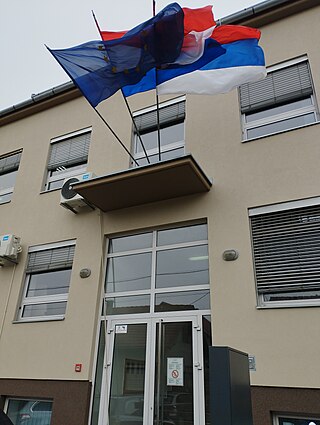
The Joint Council of Municipalities in Croatia is an elected consultative sui generis body which constitutes a form of cultural self-government of Serbs in the eastern Croatian Podunavlje region. The body was established in the initial aftermath of the Croatian War of Independence as a part of the international community's efforts to peacefully settle the conflict in self-proclaimed Eastern Slavonia, Baranya and Western Syrmia. The establishment of the ZVO was one of the explicit provisions of the Erdut Agreement which called upon the United Nations to establish its UNTAES transitional administration.
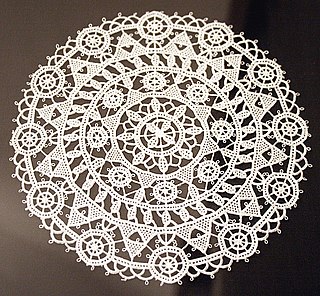
Lacemaking in Croatia is a tradition dating back to the Renaissance when lacemaking began spreading throughout the Mediterranean and continental Europe. Throughout the years, Croatian lace has become notable for its unique patterns and designs. In 2009, UNESCO recognised lacemaking in Croatia as an Intangible Cultural Heritage of Humanity.

The Cultural and Scientific Center "Milutin Milanković" is a public cultural and educational institution in Dalj in eastern Croatia. The Center promotes the legacy of Milutin Milanković, Serbian mathematician, astronomer, climatologist, geophysicist, civil engineer and popularizer of science. It also organizes cultural events and exhibitions, issue publications, audiovisual and promotional materials, preserve traditional heritage, organize cultural and scientific meetings, promote sustainable development and popularize science. In 2012 the Center was visited by more than 5,000 visitors.
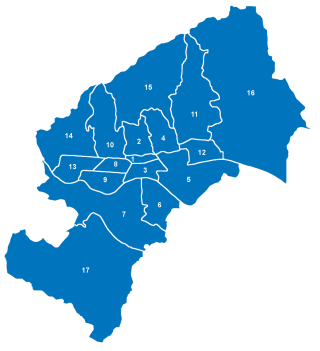
Zagreb is split into seventeen administrative divisions called city districts. The city district, along with a local committee, is a form of local self-government in the City of Zagreb through which citizens participate in the decision-making process in self-governing areas of the City and local affairs that directly affect their lives. The city district is established for an area that represents urban, economic and social entity, which is linked to the common interests of citizens. The current division was established by the Statute of the City of Zagreb on 14 December 1999. Legally, a city district is a legal person who has its own governing bodies.
Croatian Radio is the official broadcasting service of Croatia. Founded on May 15, 1926 as Zagreb Radio, it's the first radio station in all of Southeast Europe. Part of Croatian Radiotelevision, it operates three national stations, several regional branches and an international service.

Miranda Veljačić is Croatian architect, researcher and cultural worker.

Shadow Casters is a non-profit organization from Zagreb (Croatia) working as an international artistic and production platform for interdisciplinary cooperations in intermedia arts in urban context. It was founded in 2002 by artists Boris Bakal and Željko Serdarević, with Katarina Pejović, Stanko Juzbašić, Vanja Žanko, Srećko Horvat, Sandra Uskoković, Leo Vukelić and other collaborators. Since 2006 they are a Clubture Network member.

Clubture is a non-profit, inclusive, participatory network that works on gathering actors and strengthening collaboration between non-profit organizations in Croatia, founded in May 2002 in Zagreb. The network works towards achieving its goals through the exchange of cultural and artistic activities and programs across different parts of the country. It was formally registered on June 16, 2002.
